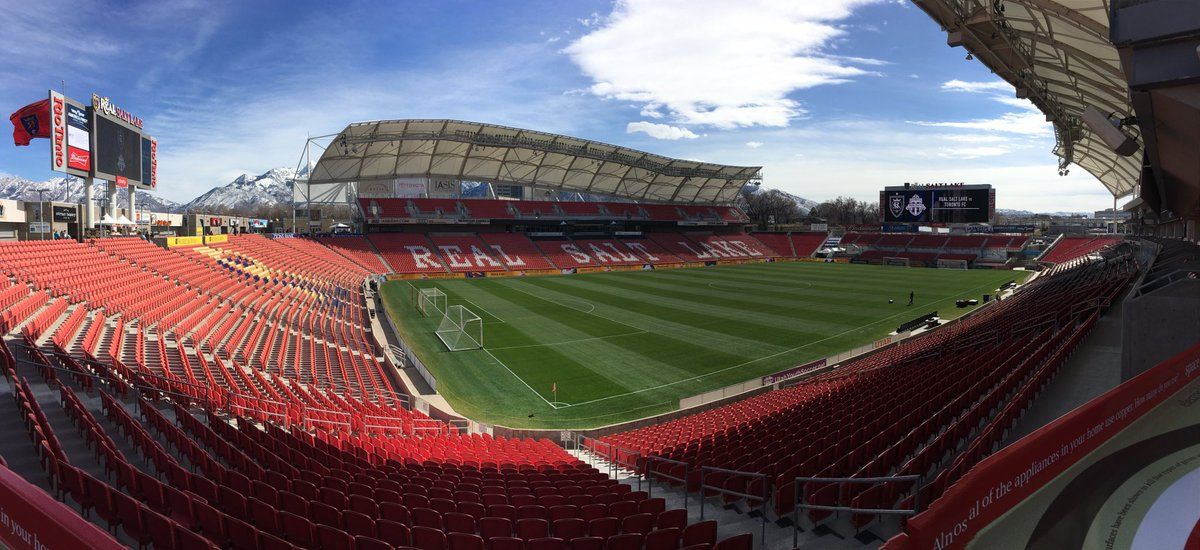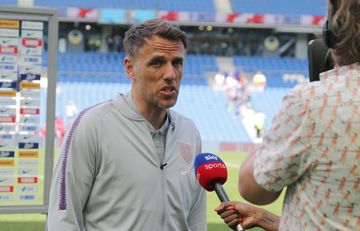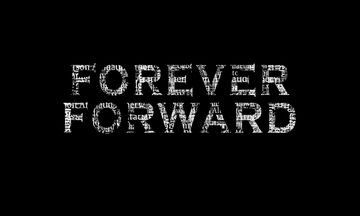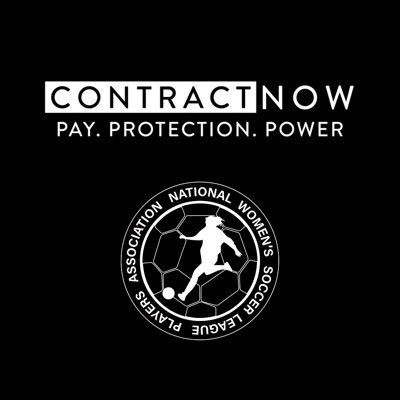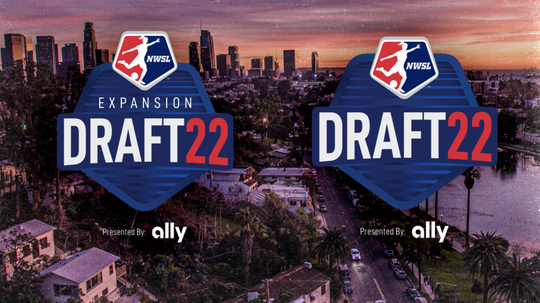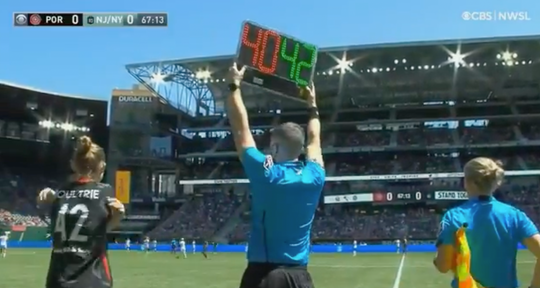Author's note: Given that non-roster invitees are not under contract with an NWSL team, club media contacts were unable to help me set up interviews, and I had to reach out to players directly. Only few individuals responded to requests for an interview, and one requested anonymity because NRI players have virtually no protections – again, because they haven't signed with a club, these players are not represented by the NWSLPA. Because of this, potentially identifying information – including the club this player was training with – is left intentionally vague. Information obtained from any unnamed individual has been corroborated. Due to the number of people interviewed, this piece is not intended to serve as an exhaustive, league-wide compilation of everything NRI players experienced during the training moratorium; rather, it reflects and contextualizes the experiences of a handful of individuals during this time.
"I ended up training with [an NWSL club] for the first four days," said one player, "and on the fourth day we got a message after practice."
Any hopes of a normal NWSL season were cast aside as the novel coronavirus took root in the United States. Four days into training, the league announced that all preseason games would be cancelled. Soon after, it issued a training moratorium and then extended the suspension's duration. While the NWSL asked that players remain in market for their respective clubs, not everyone in preseason camps was extended this request.
Because the league was still in preseason, there were a number of non-roster invitee players in camp with NWSL teams when the moratorium went into effect. NRI players are either called into camp by coaching staff or given the opportunity to train with a club after impressing during pre-preseason open tryouts. Before the regular season began, these players would ordinarily have a chance to make a case for themselves, potentially securing a roster spot (or just an invitation to practice with a club during the regular season and earn game time in the future). However, as the league began to impose training restrictions in response to COVID-19, the opportunity presented for many of these players was cut short.
"Going into it, I was pretty nervous," admitted Arianna Veland, an NRI player with the Chicago Red Stars. "Not that I wasn't confident, but I obviously wasn't drafted and I wasn't invited to preseason without going to tryouts, and they definitely have some high-caliber players on their team, some national team players." She pointed to the speed of play as a major difference from college soccer, something it took her a day to get used to.
The speed of play was less of an adjustment for Annika Schmidt, who was called into a preseason camp without first attending open tryouts. She played for the Chicago Red Stars Reserves last summer and got to train with the full team when players were away for the World Cup – although her role was essentially to serve as an extra body. Regardless, Schmidt described butterflies in her stomach her first day of training with the Houston Dash. "You're playing with such elite players, and you're also playing in front of such elite coaches. It's hard to know what to expect," she said.
Fortunately, the Dash's team culture proved to be a wonderful fit. Schmidt praised "the competition, the camaraderie, the team atmosphere, and the communication on and off the field." She continued: "The players definitely had your back, but… that level of intensity that they expect of themselves, they were expecting that of you, too."
"Even in those four days, I learned so much," recalled Veland, "just playing with the girls and being able to learn from them and ask them questions."
We’re Going Home
"The league communicated after about a week that [for] anyone not on contract, it makes most sense for them to leave market," explained Portland Thorns head coach Mark Parsons. As the moratorium continued: "I thought this was very sensible from the NWSL. Our players... could get back to their own home and their own market where they have more support – emotional support, financial support."
The financial side of the decision is more easily quantifiable of the two. During the first week of preseason, one player was staying with a host family – not an uncommon practice among NWSL training players – and paying expenses out of her own pocket. Veland was living in an Airbnb, also by her own funds. Schmidt got lucky: one of Houston's draft picks chose not to report to camp and she got to reside in the player's room in the team apartments, although she was still covering food for herself.
For Schmidt, the monetary commitment was undoubtedly worth it. "At this point in my career, you have to take a leap of faith," she said, "and you have to be willing to invest in yourself so, hopefully, in the future others will invest in you."
However, when the NWSL announced that training would be put on pause, it began to seem less practical to ask NRI players to continue to finance themselves in this way. Schmidt and another player returned home, while Veland was able to stay on her university's campus.
Staying Home, Staying Safe
When the moratorium went into place, clubs had to find alternative ways to communicate with their players. Even those who were remaining in their respective markets were isolated from one another. Like the rest of the country, the NWSL turned to team meetings over Zoom.
The Red Stars stayed in communication with those in preseason. "All the non-roster invitees were still involved in all the Zoom calls and all of that," explained Veland, "so we were still kept up to date. We were always let know what was happening and what they were talking about with the upper NWSL committee." As time went on and Illinois' stay-at-home order continued, these meetings waned in frequency. Veland estimated that the team would hold calls every week or two to check in and update players.
"[The moratorium] was extremely nerve-wracking for me," she said, "because we didn't know what was happening." With different places across the country constantly evolving their responses to COVID-19 as public health experts learned more about the virus, facets of everyone's lives were up in the air.
Veland also pointed to the fact that, aside from jersey sales, the Red Stars weren't making money as an organization during this time. Due to the lack of revenue, she was unsure if the club would even be able to offer contracts to NRI players. Despite the uncertainty, Veland continued to train on her college's campus; she was determined to be prepared if she got another chance with the team.
"I used this time to put my head down, like I do," said Schmidt, echoing Veland's mindset. "I just drive forward and be like I'm going to use this time to get better – physically, mentally, any way possible that I can." Her focus remained on training like a professional athlete, with the awareness that no one, not even roster players, had a timeframe for when they might get back on the field.
"[Houston] did a really good job of – I can't speak for everyone – making sure I was in communication with them and knew the situation," said Schmidt.
"It's been hectic," said another player of her experience, "yet not at the same time; we’ve just been at home." On one hand, she was operating under the assumption that she'd be returning to regular preseason at some point; on the other hand, she was unsure when that would be and how she should create her training regimen around that return to play.
The player pointed out that, in some ways, it was helpful for her to be home; she knew the spaces around her where she could practice, while rostered players who had recently arrived in their club's market potentially did not. "It was stressful," she acknowledged, "but I feel like right now is a stressful time for everyone."
What Now?
After about a month, the Dash removed its NRI players from team communications. One source indicated her belief that this choice was made because the team already had 28 players under contract, the maximum number that each club is allowed to take to the 2020 NWSL Challenge Cup. (In fact, Houston now has 29 players on its active roster.) On May 20, Schmidt and the club's other NRI players were told that they should not plan on returning to the Dash this year.
"My heart sank a little bit," said Schmidt. However, she recognized that the club's decision made sense given the circumstances. "Most importantly, for me, it was taking the opportunity and being extremely grateful for it," she said, "and reaching back out to the coaches and [assuring] them that, obviously times have been hard, but I'm so grateful for the opportunity, because it was an amazing opportunity."
Those who won't be returning this season are keeping an open mind. "Right now, I think the goal is just to play soccer," said one player. "If that means Europe, if that means Asia, that's something that I can work with, but I think that when NWSL tryouts come [around] next season, if they do, it would be lovely to join the NWSL again."
Schmidt holds a similar sentiment. "Whether it's overseas, whether it's in the NWSL, wherever it is, you just have to get your foot in the door and people have to take a chance on you," she said. To her, that means faith: trusting in God's plan for her and being prepared to take whatever opportunities arise. It also means, in her words, "being okay not having a door open. But when that door opens, wherever it is, taking that chance on yourself, because someone's willing to take that chance on you."
For Veland, that door is still open. Chicago made its initial round of preseason cuts and told remaining players – Veland included – that they should plan on reporting back to camp when the club resumed training. (The Red Stars initially had 13 NRI players in camp, on top of unsigned draft picks.) "You're not getting a full preseason, so you don't really get to fully show them what you can do," she said, "but you have to make the best of what you have and work hard. Everything happens for a reason. I'm just going with the flow and playing the best I can play."
Although the club is still a couple players over the allotted 28, and more cuts are coming, Veland remains optimistic. "Even if I weren't to get a full contract for this year, there's an expansion year coming up," she pointed out. "And hopefully the Olympics still happen next year, which will give a lot of Olympic replacement contracts as well."
For now, though, it's a waiting game.
(Photo: Wikimedia Commons)
